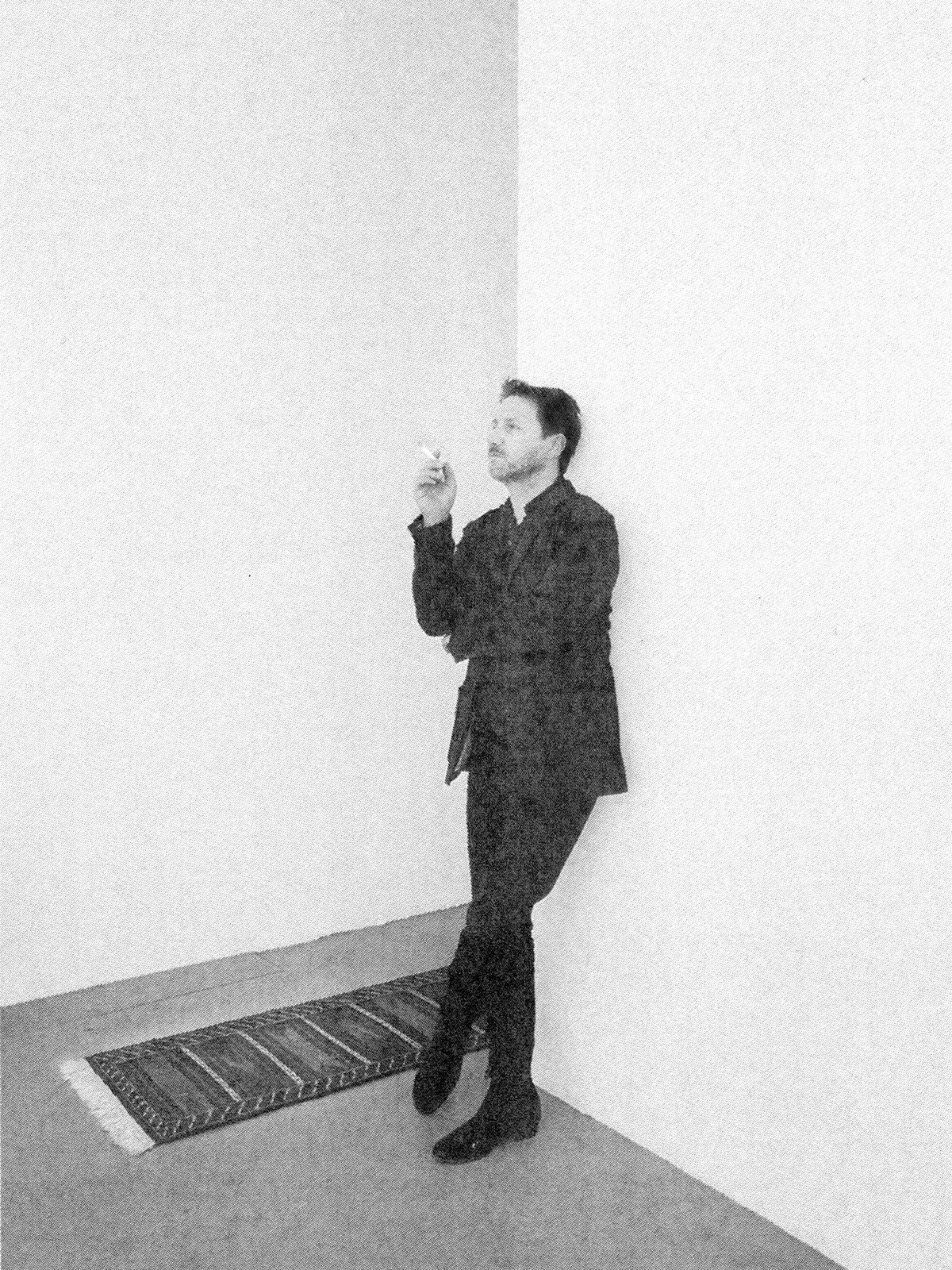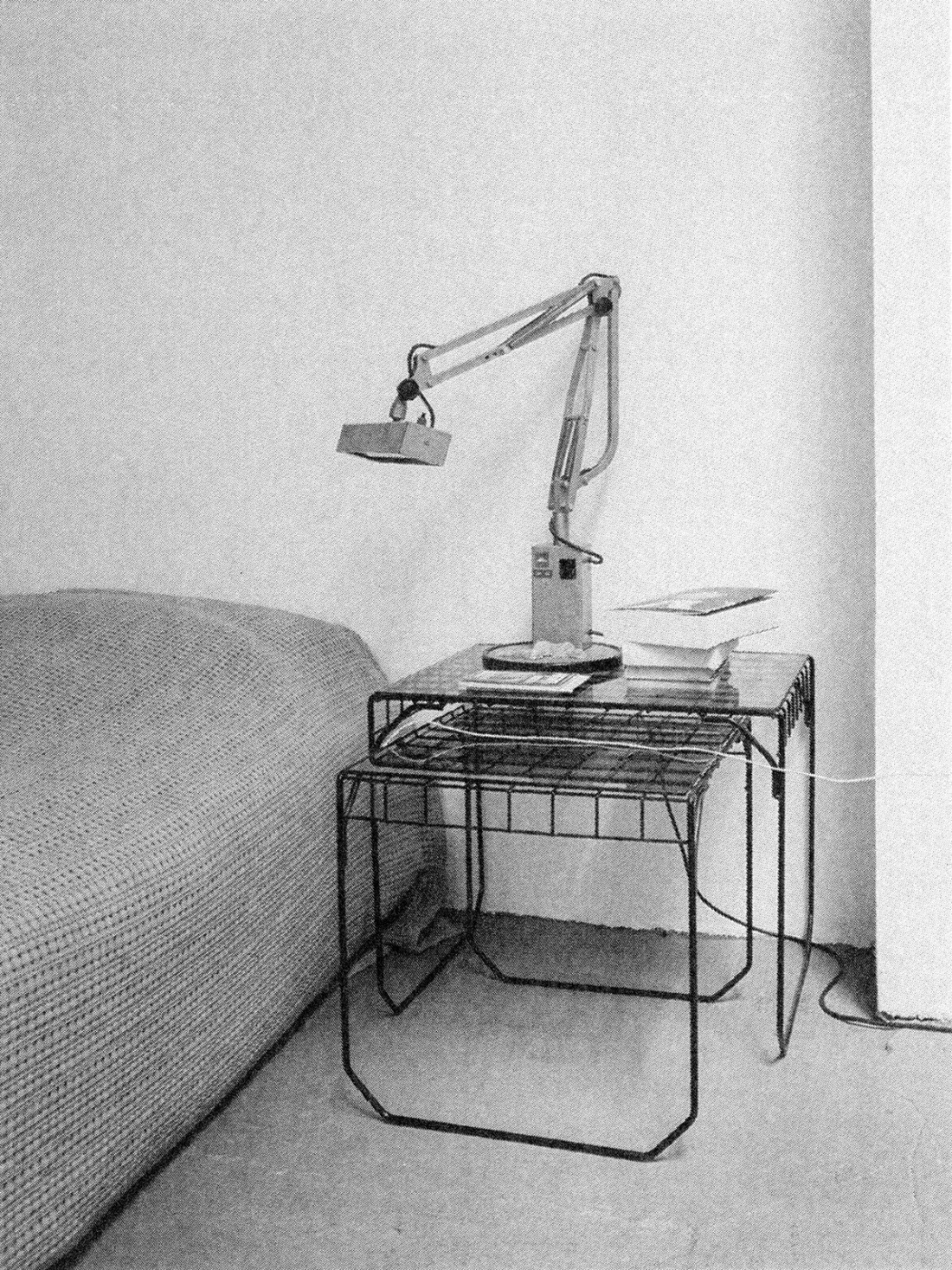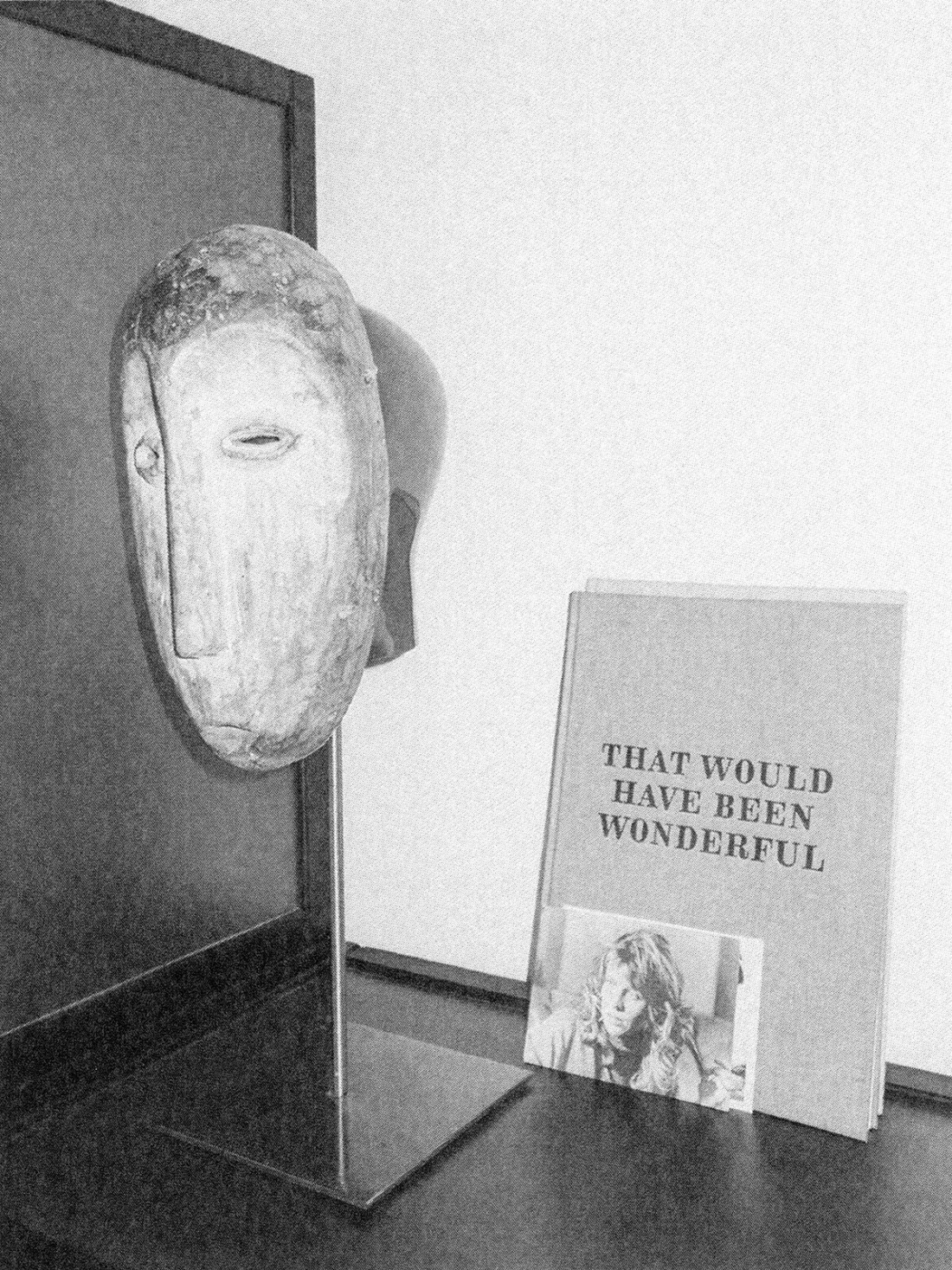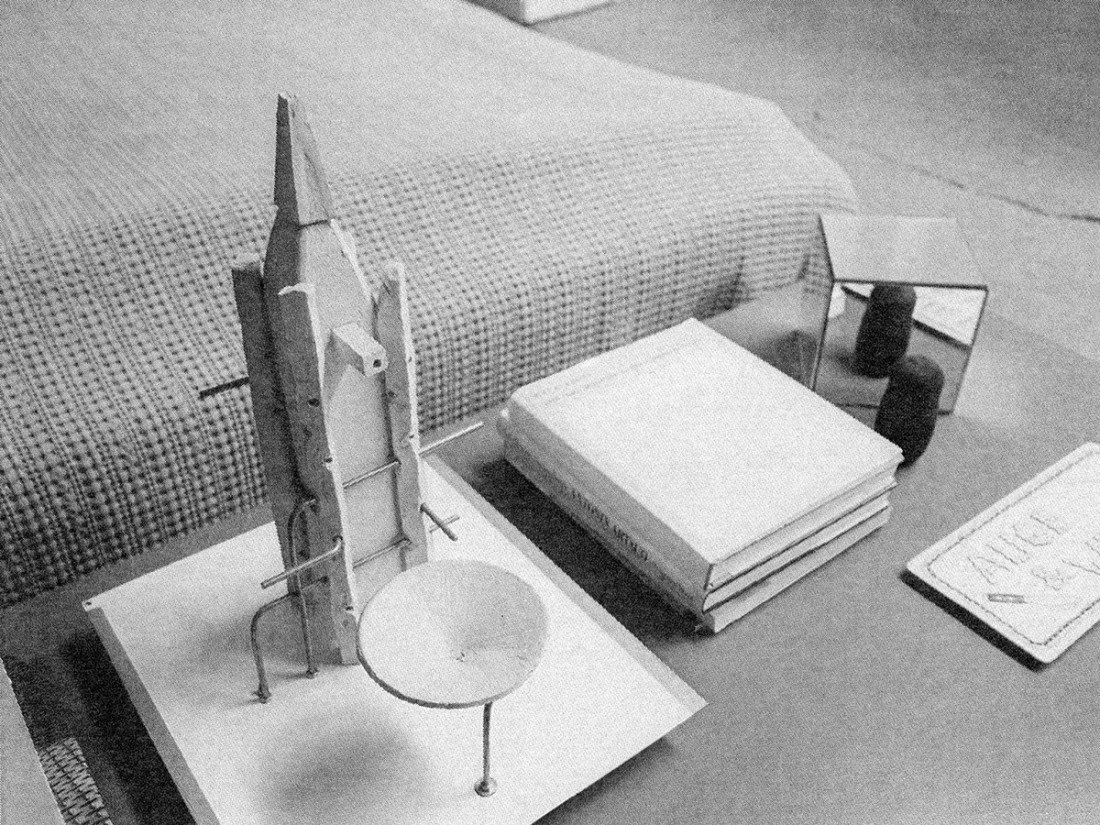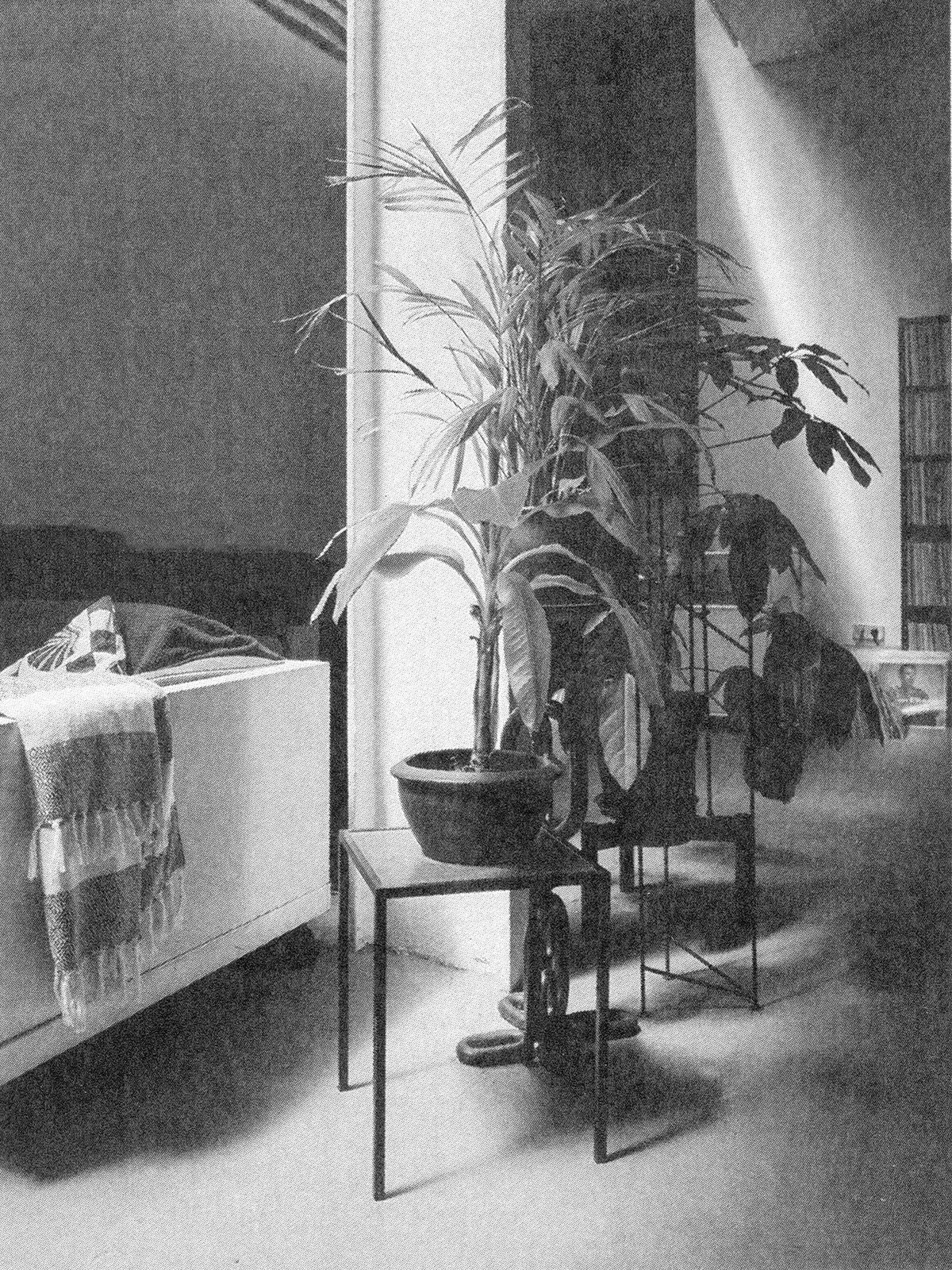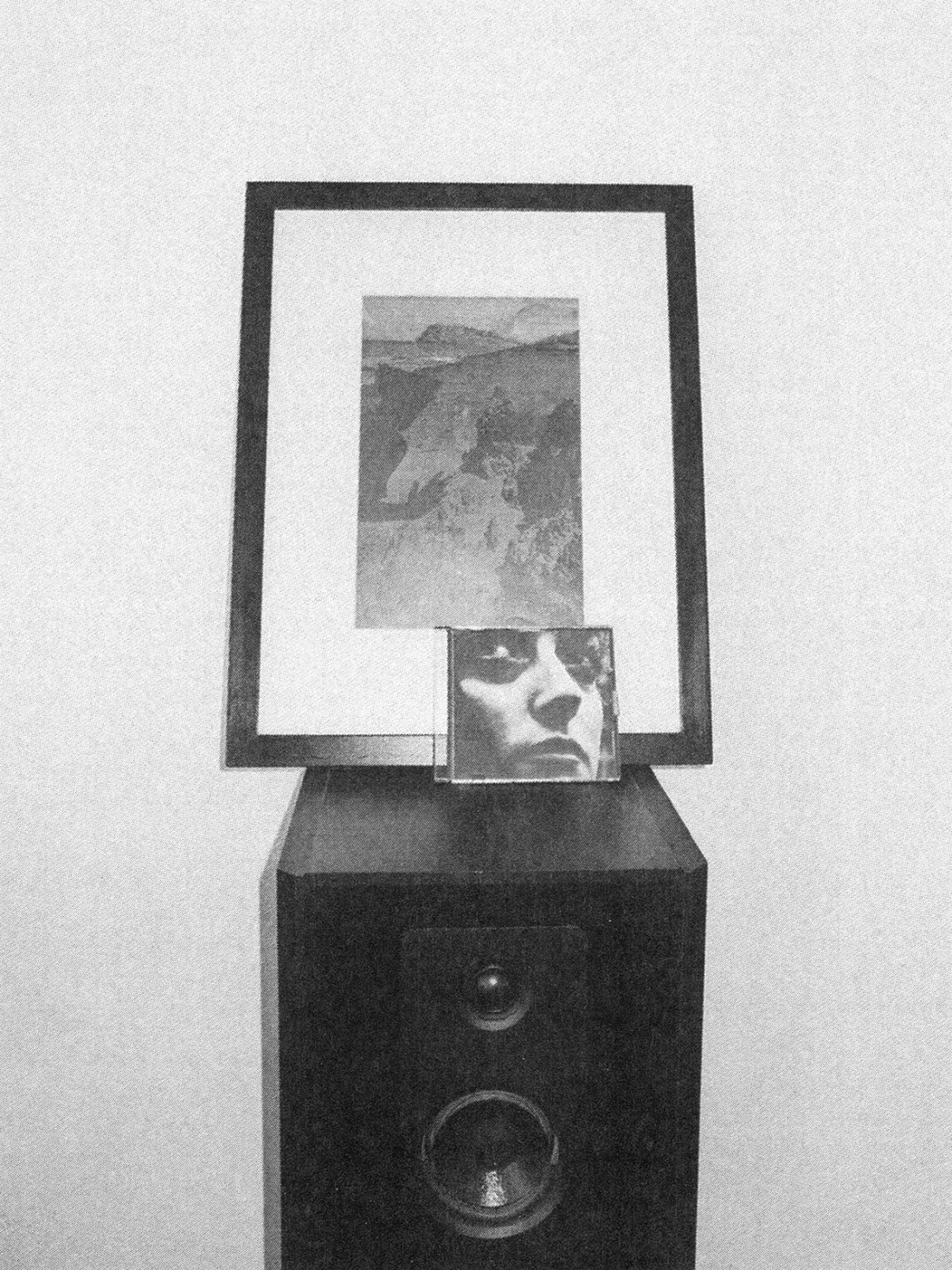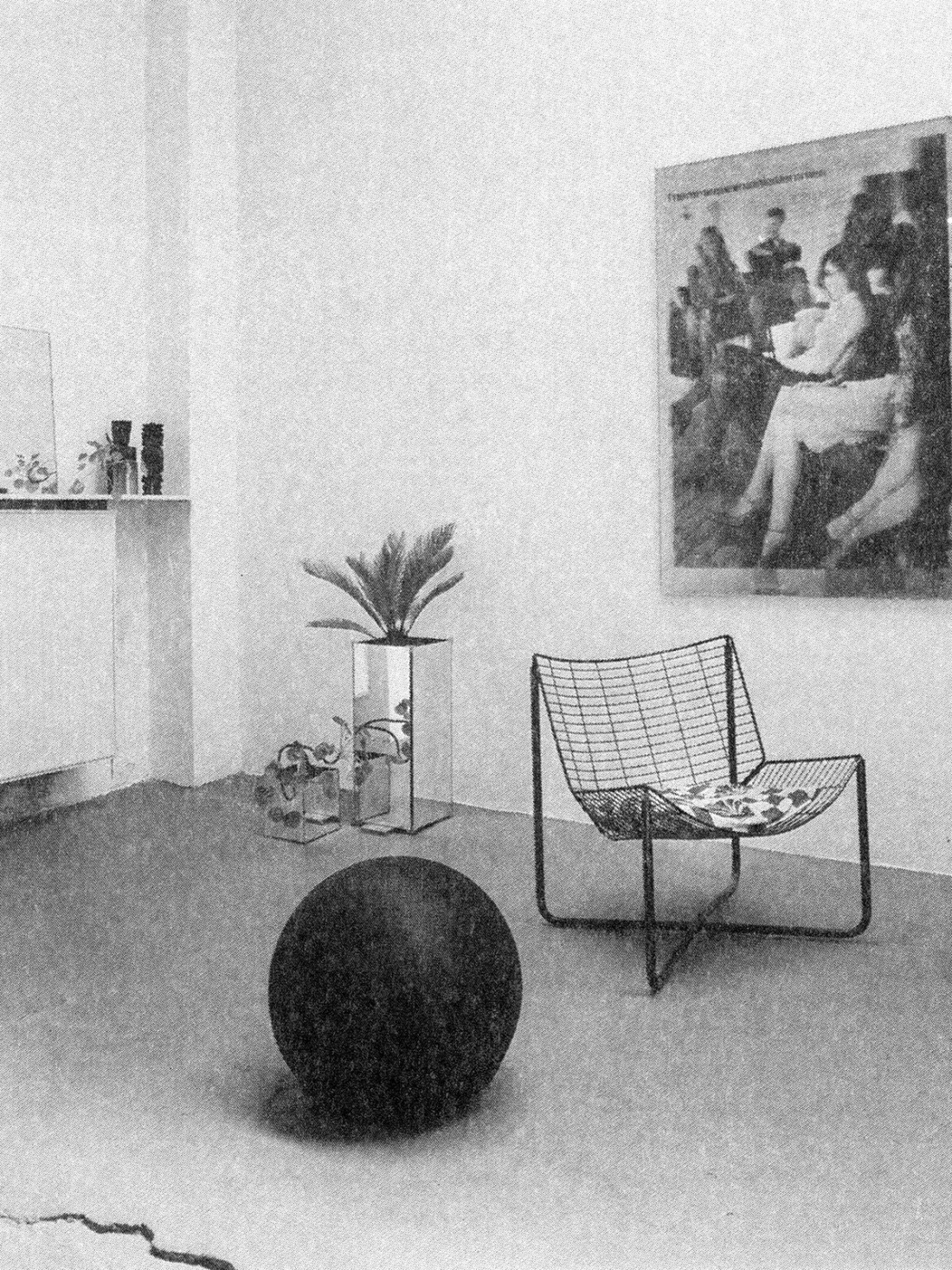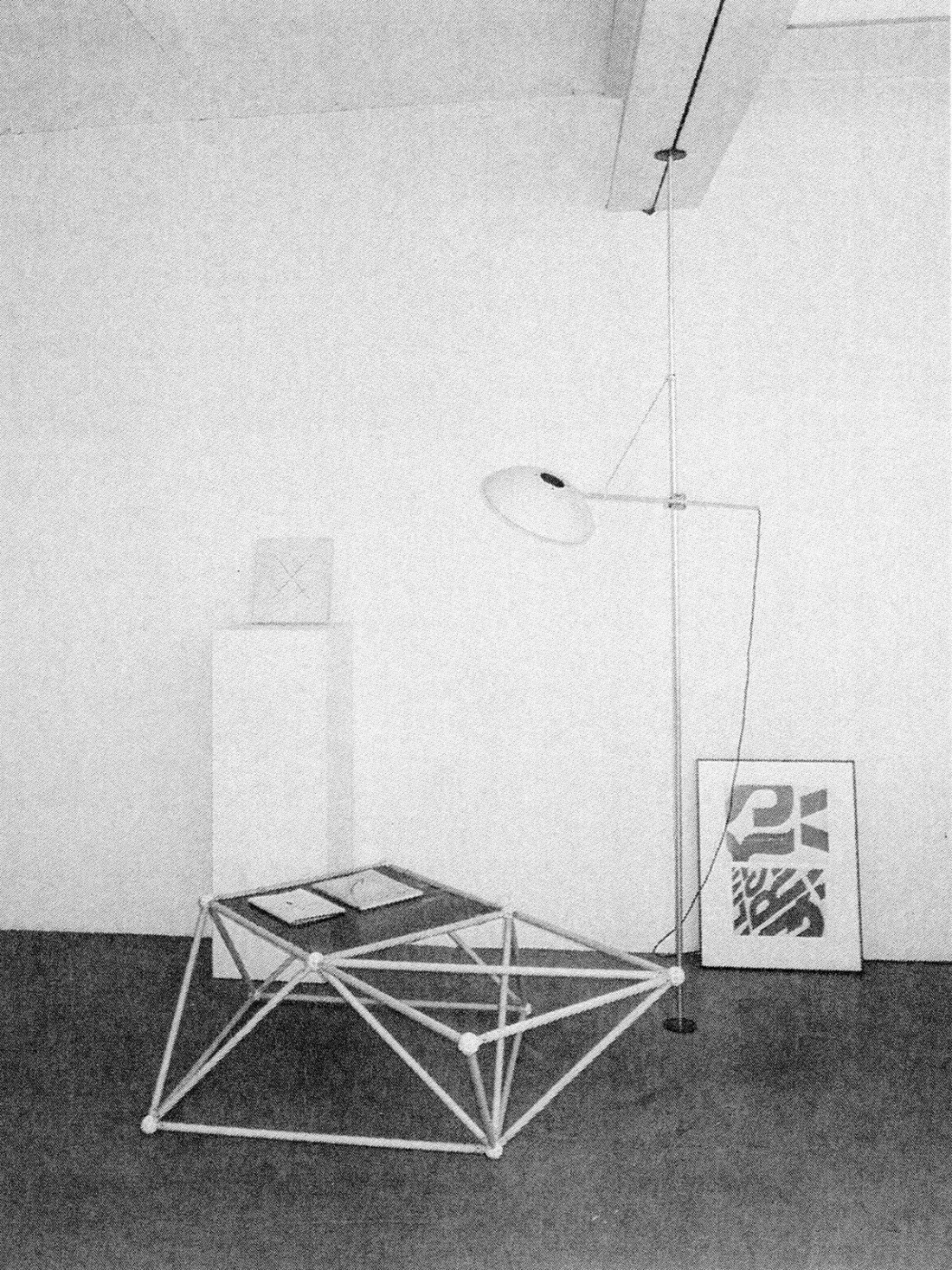“The world still makes sense in the morning, at night everything crumbles.”
I have known Detlef Weinrich for more than 20 years by now. First contact happened in the middle of the 1990s when he allowed the simple severity of pop music, as it was only known from labels like él Records and Les Disques du Crepuscule, to arrive in Germany with his band Kreidler. Generally speaking classified as post rock they were so much more free than the genre might indicate. In the end of the 90s I was able to organize two shows of his band Binford (together with Andreas Rheise aka April), whose synthie pop, unlike Kreidler, felt very tinged by Düsseldorf. Since 2010 Detlef Weinrich has been making music under his current imprint Tolouse Low Trax. He has been releasing wonderfully vulnerable, rough-melancholy music on labels like Karaoke Kalk, Apparent Extent, Themes for Great Cities and most recently Antinote. By now he is playing records beyond the context of the Salon and the sound that has been cultivated there in the field of Wave, Krautrock, Psychedelica and Techno. And together with Toresch he is indulging in the spirit of a free band project.
We met in Detlef’s atelier-apartment located in downtown Düsseldorf, halfway between main station and Salon des Amateurs.
Detlef, you got a beautiful apartment. It’s literally the ideal image of an artist’s apartment.
Thanks. I got it thanks to a friend. It takes me quite a while until I’m done decorating my surroundings. I like to have kiosk and restaurants close to my place, where I can go to have a coffee and where the owners know me.
Do you like being known?
Yeah, I do like it. I appreciate the concept of being a regular.
As your apartment and your studio are the same it begs the questions how your neighbors are feeling about your making music?
The people living upstairs are artists as well, and old friends of mine. Nonetheless I’ve been in trouble because of the music. But since I have been travelling so much I don’t really get around to making music as much as I used to. In general I have become way more quiet and am closing the upper window, now it’s okay. For a while I have made music way too often and have been too loud, now we agreed on certain days when I making music, and everything is fine.
Besides the fact that it is cost-efficient to combine studio and apartment: Do you like working on your music at home?
I have always liked producing at home. It’s what I need, as I start working in the mornings. I’m a morning-worker and not somebody who works at night. It still might bother the neighbors as they, as artists, also spend a lot of time in their live-in studio.
Interesting. Because of your whole lifestyle I wouldn’t have thought of you as someone who starts working in the morning.
On the contrary! I just stumbled into the nightlife-lifestyle by accident. It just happened because of the whole Salon des Amateurs situation. I have never been really close to the nightlife. Before the Salon my life was completely different. The thing about working in the morning come completely natural: After I wake up there is the idea of something and I just start. The world still makes sense in the morning, at night everything crumbles. Other producers always tell me that they make music at night, because that’s when they are able to find quiet – but that also works during the day. It’s just a question of being concentrated.
When I’m writing I do like the feeling that everybody else is asleep and that the world belongs to me – although I am working more and more during the day
I do understand this, but I just function differently.
Does this mean, that you are actually getting up at 8 a.m.?
Not that early. Although, I usually get up at around that time and then I start working at around 10 a.m. During the week I usually look after myself quite nicely, having dinner with friends, reading and deliberately watching a movie, and going to bed relatively early.
Let’s talk about being on the road a lot, as we’ve mentioned earlier. Do you still like this or are you already in the mode of complaining?
It feels kind of strange that Tolouse Low Trax is exploding like thins only now after so many years. This entails that I have to learn how to deal with the nightlife. I’m now sliding into a club context, something I didn’t anticipate in this way. Out of nowhere I’m being booked by really big clubs, where I have to play at 3 a.m., furthermore there is the traveling, having to hang out at airports – when I’m doing this every week, it is kind of…
Don’t get me wrong, all of this is really nice of course. But to be honest, and this might sound detached, you are not really that excited about being in Milan or else as you don’t see much of the place anyway. Sure, the requests always sound amazing, and that is why you accept the offers., but once you are there and have to get through the next morning and spend a lot of time at the airport, where there are the delays and all of that, then it’s not that simple anymore. If I were just 30 years old, this would be totally different and I could handle it differently.
I know what you are talking about: You are by now noticing the fragility of your body during the next day a little bit more than you did a couple of years ago.
Which is connected to the fact that you don’t stop living hardcore. I just can’t let it be to have fun in the same way as anyone als and do not drink or smoke less just because of my age.
You don’t manage to have a functioning rhythm? In the lines of: On Friday I will be good and on Saturday I just let things happen.
Oh, obviously, I do that. If I am in Düsseldorf on a Friday I will avoid going to Salon – as I am the promoter on Saturday. Although it doesn’t work like this all the time.
Are your experiences with Kreidler helpful? Going on tour with a bad you try not to burn out all of your energy in the beginning and save the excess for the last dates of the tour.
Nice idea, but that is not how I function. No, I need all of this euphoria, the whole shebang, it all belongs together. I can’t stay out of it in that case.
Let’s talk about the Salon des Amateurs for a bit. You had to close the bar for a bit because you had to renovate. Could you outline the status quo?
We have water damage at the Salon. The floor has to be drilled out and everything has to be drained to correct it.
To be honest: I’m quite tired from the everyday business of the gastronomy. The whole structure that it includes, which also provided for a lot of energy and good things, reached a financial point at which it doesn’t work anymore. A lot of clubs are experiencing that the certain kind of generosity and spillage that sets in when you want to have fun is not that easy to gain control of.
But the city government should be able to see that the Salon is quite a figurehead for the city, not least because of all of its world wide positive media coverage.
The Rhinelander holds a rather strange arrogance concerning his environment. Although head mayor Thomas Geisel is quite alright in that respect. He enjoys this view from the outside on Düsseldorf, otherwise there wouldn’t be all of this Kraftwerk-“Tour de France”-stuff. At least he acts in a international and cosmopolitan way. But that might just be marketing for the city. For this function we are way to small and independent.
There might be some truth in it: Bureaucracy doesn’t like people and contexts inside of its system who presume to behave enfant terrible-like. Because that negates one’s own fear, which would stand out.
Although we were always attentive to comply with them. We have always been open to events from outside, be it the “Resonance rooms”, that the HHU has been organizing at Salon for years, or a night like the one Christian S recently gave with the Robert-Schumann-School. We have always been open to everything, which implies a certain quality. But obviously that is still not enough – not enough culture.
One way would be to close earlier, before 6 a.m. This would comply with me, as this would help the place not to dwindle into a drinking establishment. Not because of us, it’s the periphery which has changed significantly, the whole historical district, there is so much more aggressiveness, so much more instability coming from the people. In the past the Salon enjoyed the respect because of the Kunsthalle, when everybody accepted that only artists go there – and you were able to deliberately chase people away with experimental music. This is not happening anymore, the interests have changed. Now it’s just about being able to get cheap drinks. In that way the place is just being used. You could counteract this by rebooting everything, but that has to be decided by the collective. Personally, I wouldn’t be against everything calming down. Everything is so hysterical. That is not our problem, but a general problem, this weird hysteria that is prevailing everywhere – I don’t like that.
What you are describing is the specific visitor structure of the Salon. In comparison to other places that we usually are frequenting have a clearly defined audience, the Salon has a progressive clientele. There is the afternoon visitors who want to drink coffee, then there is a wave of people who want just one drink, later on it’s the art school students who want to let of some steam, and on weekends late at nights the Salon suddenly turns into a club. The people who come in at 8 p.m. and those who are there at 5 a.m. do not have a lot in common.
Which is actually really great.
Yeah, it’s interesting as it is the opposite of an art of selection as at Berghain. But is surely is not without its problems.
The diversity and the generations who are meeting there at different times is what I’ve always liked. It couldn’t have turned out better.
Let’s just get back to your very harsh statement that the Salon “is not economical”. That is a stiff critique, as most of the people playing records at Salon are usually doing for a very low mates’ rate, for a fee for which they wouldn’t even travel to other places for. But in the end the Salon is to small to recapitalize that in any way, isn’t it?
Exactly. In general it’s only on the weekend that any money can be made – but if Friday or Saturday go badly as well it can be very hard. Of course there are sometimes openings or previews at Kunsthalle, or readings or shows at Salon, where some money can be made. But, I have to admit, that it had worked better before the ban on smoking. Back then people came in early on an evening after going shopping, had a coffee and a drink afterwards. That lounge idea was what people really liked about the place, but that is gone now. They are not coming anymore.
Detlef, let’s change the subject and talk about you and the recent positive developments. Tolouse Low Trax is doing really well right now, isn’t it?
Yes, I’m doing really great. New financial opportunities are happening which means that I’m able to live from making music for the first time in a long time and do not rely on the Salon. Which is really positive, sure!
That’s not an individual development that only has happend to you. It can also be attested for the other residents of the Salon des Amateurs like Jan Schulte, Lena Willikens, and Vladimir Ivkovic.
We are all in this great boat right now that we all have developed plausibly together and over a long time. Yeah, that’s nice, incredibly nice. In this respect I’m really satisfied.
Although you really needed a lot of stamina for this. It’s astonishing how long it took for people outside of Düsseldorf to recognize you. Was that a problem for you? Especially in view of your age, which we were talking about earlier
No. In this area of music, let’s call it “Salon surroundings”, age doesn’t factor in at all. Our audience, and I do have younger fans as well, they are not interested in the fact that I’m 50 years old. That is irrelevant. It’s something completely different in the pop business. But concerning the kind of music I’m making I’m totally free. At least concerning the external perception my age is irrelevant. I would even go so far and say that there is some kind of education happening in our music world that teaches people to live next to one another at the same time, this relates to stylistic preferences and also age. Also fitting this is the fact that there are currently a lot of people who consciously buy old records and reissues, who like genres like balearic or a label like Music from Memory, but who at the same time are equally attentive with new music, and are listening to hard techno and acid. The fact that everything exists in parallel has not always been true. That has a lot to do with education – we have cultivated an openness.
How did you accomplish this? How did you get the people to reach the point where they are ready for it?
I just fell into it with my music. Suddenly it fell into place that all of this old stuff you like found a translation into my music. Not really in the sense of antiquated, I’m not retro at all, but you can pick out all of these influences – and a lot of people realized that. It is true that it hasn’t always been like this. Five years ago, when I was playing at Zukunft in Zurich for the first time nobody was dancing, just as an example, – but last summer everyone was dancing, I was playing in addition to a classical techno act. Or recently at Le Sucre in Lyon, Lena Willikens was playing before me and Helena Hauff afterwards – and I can play in between them, in front of 800 people. It suddenly is working everywhere: From Amsterdam, to Paris and up to Madrid. Everywhere. The people are suddenly realizing that they also can dance to 110 bpm. That was a gradual shift. But to get back to the question: I can’t really explain it as it is happening in different countries at the same time. In Spain, in Israel. Even in a small French town such as Clermont-Ferrand where I played last week and where people went crazy. Really, it was a blast. Whereas playing records is just one aspect, you have to have energy. That’s what I mean when I say “I fell into it”, my sets kind of changed, you do adapt a bit of course. And you have to be careful to how much you want to adapt. It’s not as if you were suddenly producing techno, but there can be the odd hit in my sets, now that I know that people might go crazy.
You are being booked live 90% of the time, aren’t you?
Yes – playing records happens rather rarely. Although I’m going to DJ in Madrid and Paris next week. Joakim invited my to Paris, it’s going to be an ambient-drone-night, a tribute to La Monte Young. I will fit right in, won’t I? And in Madrid I will play first that night, and that’s the position I rather see myself in – I am realistic enough to tell my booker to point out to the promoters what they will get when they book me. Which won’t be consistent beat matching but rather my style – and funnily they always respond with “of course, we do know that.”
Yeah, that is the freedom that you have worked for with your biography. It is not accidental that many of the protagonists who present this sound can show a certain maturity. You need a learning curve, you have to have heard and told a lot.
Yeah, of course. But it obviously is a lot easier to tell this at Salon, which is my castle, then somewhere completely else. What is so beautiful about it: it works. In some ways it is a lot easier for me to play records, as you have a lot more time and not this one hour, focussed live set with the responsibility to just play your own music. It can make you feel like a victim.
On the other side it is a fact that a lot of these young people do not have this awareness. They say: ”Your djing was amazing”. In Clermont-Ferrand I had a discussion with a young art student who said that there is no difference between playing records and playing life. She really tried to tell this to me, and she was not dumb. You should have to listen to what they are saying!
What was here line of argumentation?
I couldn’t really figure that out. But she was really strict and only replied that she can in no way understand my position, as both things are about creating music. At one point I just left, after I got a little bit mad.
Detlef, what is producing like for you, do you feel that there is a tension to what you are playing as a DJ? Have you realized that over the course of time, due to new experiences your working method has changed?
Yes, kinda, not least because of all the positive affirmations that I am getting. But I try to be wary so that I don’t lose myself. I do not want to do anything that I can’t do. Now we are back at the advantages that my age is entailing: I know what I can do and what I can’t do. Of course I do want the people to dance, but on my terms. Sometimes I am thinking that everything could be a bit more weird, more experimental, more difficult to access…
… are you talking about your live set?
Many of the live songs, I just recently talked about this with Gudrun Gut, do just belong into my live set, I don’t even want to release them. After a while you are detaching this. Or at least that’s what I do.
Does that mean that there is not a lot of the material from your records in your current Tolouse Low Trax live sets?
Yes, I have released three or four of the songs, but not the rest.
My recordings always life are by the way. I am always making one take recordings for my records. There is no playing out of separate tracks, but just this one track just like in a live set. This is not happening in the song mode of the MPC, but as a real arrangement – whereas I am always recording several takes and then decide which one is the best. Usually it’s the first one.
Although that is some kind of an unwritten law. A lot of people are working that way.
I have even produced a track like ”Rushing into Water” in one day and just played it out once. After the recording I knew that it was the right one. I knew that if I would try to work on it and think about setting in the hi-hat a bit earlier or something like that, then I would fail. I would just take aways something from it and I would think that it was more interesting in the beginning, with the discrepancies in the arrangement. It’s a great feeling to just lat the machines run like that. Then I d not spin out, at such a moment I just know that it’s best like this and that the people will understand this secret of the music.
A lot of young people are asking me how I work – and are completely blown away that my music can be produced with so little equipment, and that there are no single tracks and that there is no computer editing. Thereby I always have the ability to react to the audience and play songs for as long as I want to.
Talking about your equipment. What are you working with?
With MPCs and synthesizer effects – for forever, the only thing that is changing are the MPC models. For me it’s about limitation, that’s what I need. Maybe that is why it is so easy for me to not expose myself to too much choice, but to believe in the idea of an energetic moment.
Marc Piñol from Hivern Records asked my after my last live set at Moog Club in Barcelona how I was able to create this wall of sound, full of all this dirt inside of it and the rough energy. He said he is working way to long on songs and thereby ruins them as they would sound way too clean, anti-septic, too tidy. It’s an interesting question, especially as it comes from another musician. I am always wondering about stuff like that. After all I am consciously working in that way.
It’s exciting that someone as successful as Marc still has this longing for another sound.
Marc is also not very young anymore. A lot of young people have this endless trust in all the glowing tools. That’s horrible! Look at how many Roland- and Arturia 808-machines are being sold after just two months, just because people don’t enjoy them. I don’t know why that is, as I never had one of those things, but I believe that the people are quickly realizing that ”all of that are just toys.”
What you are talking about right now is producing deliberately. Are you reflecting a lot about your sound?
Yeah, a lot. I am very keen on talking about the different ways of producing music, always and really in-depth: why you do what you do and how you do it? It’s about differentiation which is not that easy these days. There is some kind of popular, new cosmic music with the nth Turkish sample and techno- or idustrial-ethnique-percussion-moments out there. You have to ask yourself where you see yourself and where you want to go. Especially if you assume some kind of pioneer’s role – ”Jeidem Fall” was a record that has a lot to do with what a lot of people like to listen to today: ethno samples, voice samples, industrial ideas. Or even ”Syncom Data”. People like Nation Records’ owner Melvin Oliphant III don’t ask me for records by chance. But to be honest, I’m already through with that, I don’t want to deliver distortion sounds anymore. You want to be ahead of your time. As soon as I feel that I’m associated with something too much I have to run away. That is being a dandy – being a dandy means, according to Oswald Wiener, ”I don’t want to be connected to anything”. I did not become an artist to surrender to the working moment as with a regular career choice.
Although your current trilogy on Antinote, the ”Decades I, II, III” series, is the opposite of such a negation and rather opens up its own category.
Zalton kind of overrun me with this series. I have talked about maybe releasing a record on Antinote with co-partner Gwen Jamois. And when I played some stuff from my back catalogue to him he said that he liked all of them – and then he spoke of three records. What I like about these releases is the fact that it irritates those who celebrated ”Rushing into Water” a bit. That’s why there are records like ”Porcelain and Volcano” where I collaborate with other artists, or tracks like the one that I produced together with Inga Danysz, who also worked for Robert Johnson, for her artist residency in Amsterdam. I appreciate such a artistic rotation and irritation. On the other side I also long for reconciliation, the remixes that I did for Sano and Harmonious Thelonious are kind of sexy. They are so sexy that people are wondering if they are from Ricardo Villalobos. I am not afraid to make dance hits if I manage to succeed at it, but afterwards I am drawn back into making sketch-like stuff such as the ”Decades” series.
By not letting yourself be tied down to a certain sound you say: This is my space – and in it a lot of things are possible, dance as much as fragments or even songs.
That’s it. At first I listen to my stuff myself, and if it feels good it is good – and it feels good.
Are the travels and your altered living conditions have an influence on the way you are producing?
There are no super radical inconsistencies. Changes are taking very long for me, I am really patient in this regard. I have never pushed too hard to get attention. The only capital that I have as an artist is to be as authentic and with myself as possible. It took me a long time to get this insight. My first record kind of hat the idea of baile funk, back then I reacted to sounds and styles from the outside – imagine that! In the end I failed with it. The great benefit of working for a long time on something is suddenly realizing what you are really doing and being prepared to reduce the influence from outside effects and pacing one’s memories and sentiments. And suddenly everything becomes much more clear and you can find an universal language and thereby reach a lot of people.
Failing with something that feeds on your own desire is not so bad. On the other hand it is unpleasant to seize a sound because you think that it could take you somewhere.
It was a problem for me for a long time to suss out the cheesyness from my music. A problem that Kreidler are also aware of.
In my review for Kaput I have explicitly written that there is a lot of your influence in it.
Yeah, maybe, at least concerning the rhythmical things. The record was created in two days, and I was only there for one of them. The record that we wanted to release originally, which we scrapped, I didn’t contribute at all because I wanted to take a break after our trip to Mexico. The rest of the band went on to Austin to SXSW in spring, but I didn’t feel like going to Texas and play at a festival where you don’t earn any money and have to fight for attention with 1,000 other bands.
Sometimes it’s better to know where you fit in and where you don’t.
Yeah! I didn’t get it. You have to keep at least some of your dignity. They played in front of 15 people under the slogan “Krautrock Lounge” together with Stabil Elite and Faust. I am not bent on this, I don’t belong there.
Let’s get back to your statement that you have been to the studio for only one of the two days. That surprises me, while listening I felt extremely that.
I was only there for one day. In reaction to Trump it turned out to be kind of a Tank record. The trigger for this came from Alex and Andreas, whereas I at first wondered what this might look like. I couldn’t imagine it at all, especially from a band that works without lyrics. Now I’m very critical once again, aren’t I? But you can try of course – and that’s why I once again did all the rhythmic things.
You are speechless about what’s happening all over the world. You don’t really know how to express yourself as an artist. That’s why so few artists are speaking out at all. And if they speak out it will get lost as it is always the same. What would a critique look like that will really have an effect? I mean what can even be done agains Trump or Erdogan?
It really is not an easy task. I have been discussing this lately with a lot of different people as well – in the end it is about keeping up our way of living and being culturally active, as we are representing an intercultural openness and curiosity. Even a yearning, exactly what is not desired in a policy of erecting borders.
So you think everything is okay?
No, that’s not what I was trying to say. Of course nothing is okay. But I think that our strength is what we are doing – and we have to continue doing that. We certainly can call upon people to go and vote, the more people are actively participating in the democratic spaces of opportunity the better. But by proving day by day, with our work, to the ones thinking differently how positive it is to not give in to your fears but instead making an impact on the world together with people of all nationalities might be our most important contribution.
Yeah, that’s my opinion as well. Therefore I did approve to scrap the initial album, although I had my concerns at first. But that is what has always shaped Kreidler. Someone like Alex has an incredible amount of ideas and I do not always share his ideas. I rather just do, because I think that it’s important to do things quickly. Time is running away.
It’s exactly this timelessness that is innate to your productions which can be heard on the album.
Exactly. That’s why it wasn’t a problem to release “Decades”. While re-listening to them I realized, that they aren’t too far from what I’m doing currently. There is something reassuring in such a discovery, as you realize that you have steadied yourself in your life as an artists. You have found yourself. You have found your voice and this voice is so strong that it can be read and respected internationally. That has always been the most important thing for me: “I’m not a Düsseldorfer, I’, not playing for my regulars’ table!”
Whereas the line to a wrong contextualization is a fine one. Earlier you talked about the Krautrock night in Texas. Generally a lot of things are being connected under the umbrella Düsseldorf, from Salon to Ratinger Hof, from Der Plan to Kraftwerk. The connections are dangerous.
I get really tired from these discussions. We recently had a reading with the authors of “Sound of the Cities” at Salon, which includes an interview with Kreidler that we gave three years ago. I don’t want to say that it was bad, but I don’t feel like always answering the same questions. I know some of these old musicians, people such as Pyrolator and I have a lot of respect for them, but I don’t want to constantly have to musically relate to them.
This simple way of contextualizing has a lot to do with laziness. Oftentimes things that don’t belong together are being labeled the same.
But coming from that place let us exactly because of this go to another place: About five years ago everyone was able to recognize the majority of records in a set, at least that is how it was for me, but now an exciting kind of DJing has been cultivated where you can only recognize a small part immediately. That is amazing.
That’s exactly what I care about. It’s the same thing for me. That is a reaction on all these re-releases which entail that records that you have been looking for for years are suddenly available. To withdraw from this everyone is asking you if you have something new that won’t be release for three month. Everyone wants to play new music: new, new, new! Sure, I also want to sound differently and want to play the new track that no one else is playing yet.
There are various small DJ groups in which chummy DJs are providing one another with songs in advance. A digital dubplate culture, so to say. Although I have to raise the aspect how records are being played. It’s not that the DJs from your environment are playing the songs as they are, usually they are being integrated into a mix in which three or four sound sources are involved and which oftentimes are being edited further.
Yes, that’s true. I’m wondering where this will lead. There are certain fears even because we all are spoilt in that regard – and sometimes it’s just about surviving. Where do the performances even stop? You have to wonder about this quite a bit. Can this question even be answered? I have no clue.
Oh yeah, it is way too human to have certain fears of the future and doesn’t trust the positiv developments – the political-cultural backlash of recent times does support this feeling.
But what do you exclude? Am I making the remix for Tige just because of the money? Will it be my end if I say “yes”?
Why would it? If it has your style then it’s rather a chance for his listeners to get in contact with new sound worlds.
But if they would listen to “Decades” because of this, they would be disappointment.
Ok, you did reach out to them: “This could be interesting to you, this could also be your world.” It seems weird to me to dogmatically exclude certain people and social biotopes.
No, you shouldn’t do that. I do not have a problem with Tiga, he is just an example where I had to think about it. That’s obviously done now.
Detlef, could you recognize what is characteristic for a track from you
I am able to test my stuff at Salon, which I am very lucky about. If people are coming by to ask about the track and if they are reacting to the assertion that it’s one of mine, with “oh, I guessed that”, it makes me happy. Although I would also appreciate a “what, thats from you? wouldn’t have guessed.”
You didn’t answer my question.
All of my productions have some kind of functionality. My structure is differently. Arne from Themes for Great Cities sometimes tells me: “If there were a snare drum at that point: amazing.” But it’s not coming at that place – and that is a conscious decision. Don’t push it to hard. It’s always about leaving out clichés. I know how to do this. “Rushing into Water” strives on the fact that there are no hi-hats. You realize quickly while working, if it will work out or not.
So, what you are saying is: The gaps are just as important as the actual sound.
Of course. Not to finish the story, it’s a Japanese principle. The beauty only develops if something is missing.
Are you sometimes erasing this at least in part or do you just leave out the “something” from the beginning.
I just leave it out.
Okay. There is no painting over it at all?
No. But sometimes you just realize that a song is lacking something really big. When someone is playing it at the club and is positioning other songs in front and after it, I just think: “I could have made this myself” – but then its just a tool.
Interesting. I wouldn’t have expected you to have this position.
The music that is most interesting to me, are the songs that are missing something, where you would think: oh, this might take longer”, as every thing is so great. Or songs that are actually just outlines. I would say that this is the goal, to manage something like this.
Is there a certain sound that you are interested in?
DThat would be a totally different subject. I am playing around with drum sounds for a very long time and when I’m playing live this might just complicate it, to get all these bass drums with different sounds to combine. If a song turns out to be too present, I might just take something away. I always want everything not to be too hysterical about all of the sounds communicating with one another. This is sometimes a bit contradictory to my idea of energy and radicalism, but I prefer it to be hypnotic, non-intrusive. Or should everything be brutally loud?
Detlef, thanks for your time.
Translation by Denise Oemcke.







